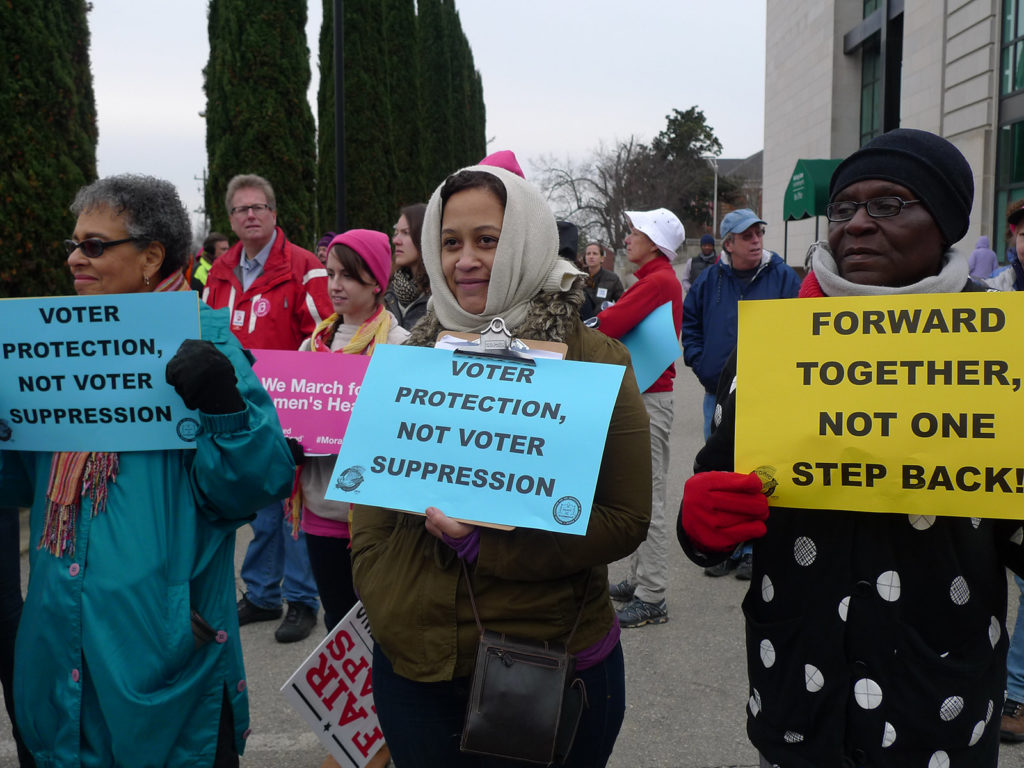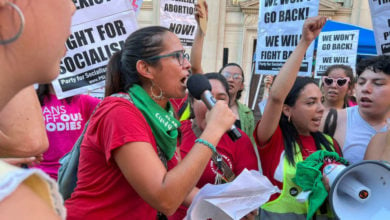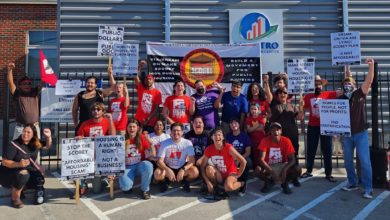A new study from the Brennan Center for Justice shows that mass disenfranchisement and suppression of votes along racial lines took place in the 2022 Texas primary. The study looks at the impact of Senate Bill 1, Texas’ newest law attacking the right to vote, and provides a glimpse into how new voting restrictions will likely influence the 2022 midterm election.
Senate Bill 1 is the latest attack in a slew of voter suppression tactics the state of Texas has been carrying out for years, targeting racial minorities, the elderly and disabled people. It targets voting by mail, which has seen a significant increase in the wake of COVID-19.
Under new Texas law, mail-in rejection rates increased twelvefold
Under SB 1, voters must write their driver’s license number, personal identification number, or the last four digits of their social security number on their mail ballot application as well as their mail-in ballot envelope. In addition, the identification used must be the one the voter originally used when registering to vote and failure to do so will lead to a rejection of the ballot application.
Moreover, the placement of the ID number on the ballot envelope is located under the envelope’s flap, meaning many voters might not even see the requirement. Even the Texas Secretary of State admits that many people likely thought this section was optional in the primary elections.
The effects of this new law were first felt during the March primary in which 12,000 absentee ballot applications and 24,000 mail ballots were rejected. This amounted to a 12% rejection rate across the state, a massive increase from the 1% rejection rate seen during the 2020 presidential election with minority voters experiencing the brunt of these rejections.
The disparity manifested in a two-fold fashion as minority voters were more likely to have their mail ballot applications rejected and more likely to have their actual mail ballots rejected. It is likely that countless people simply did not vote as they felt the process was too difficult and punitive to navigate.
All non-white voting groups had their applications rejected at higher rates than white voters. However, Asian voters had the highest rejection rates: They were 40% more likely than white voters to have their application rejected. While this data is already damning enough, application rejection data from the state is incomplete because many large counties did not report their information to state offices.
After the initial application rejections, even the ballots that made it through were subjected to an even higher rejection rate. Non-white voters were 47% more likely to have their ballots rejected than white voters. Most affected were Asian and Latino voters, who were 50% more likely than white voters to have their ballots rejected.
In total, 20% of Asians and 16% of Black and Latino voters who attempted to vote by mail were unable to do so. In elections which are often decided by a small percentage of votes, the voter suppression in Texas could amount to widespread rigging of many key races.

The fight for democracy requires mass organizing, not corporate fundraising
The Democrats have used their “opposition” status in Texas to raise obscene amounts of money for high-profile races, but that money does not seem to be helping them win elections. Gubernatorial candidate Beto O’Rourke — who has not won an election since his largely uncontested House of Representatives bid in 2016 — has raised over $63 million since late February. The total fundraising amount is far higher. Win or lose, Democratic consultants and fundraisers have made an incredible amount of money from Texas elections.
The corporate-backed far right’s ideas are supremely unpopular, which is why the Texas GOP has a vested interest in making sure Black, Latino, and Asian voters, as well as many poor whites who do not support racism or anti-LGBTQ bigotry, will not have their demands for a better system heard. The struggle for true democracy in this country needs to be a popular struggle of millions, not a fundraising pitch from well-paid consultants.





